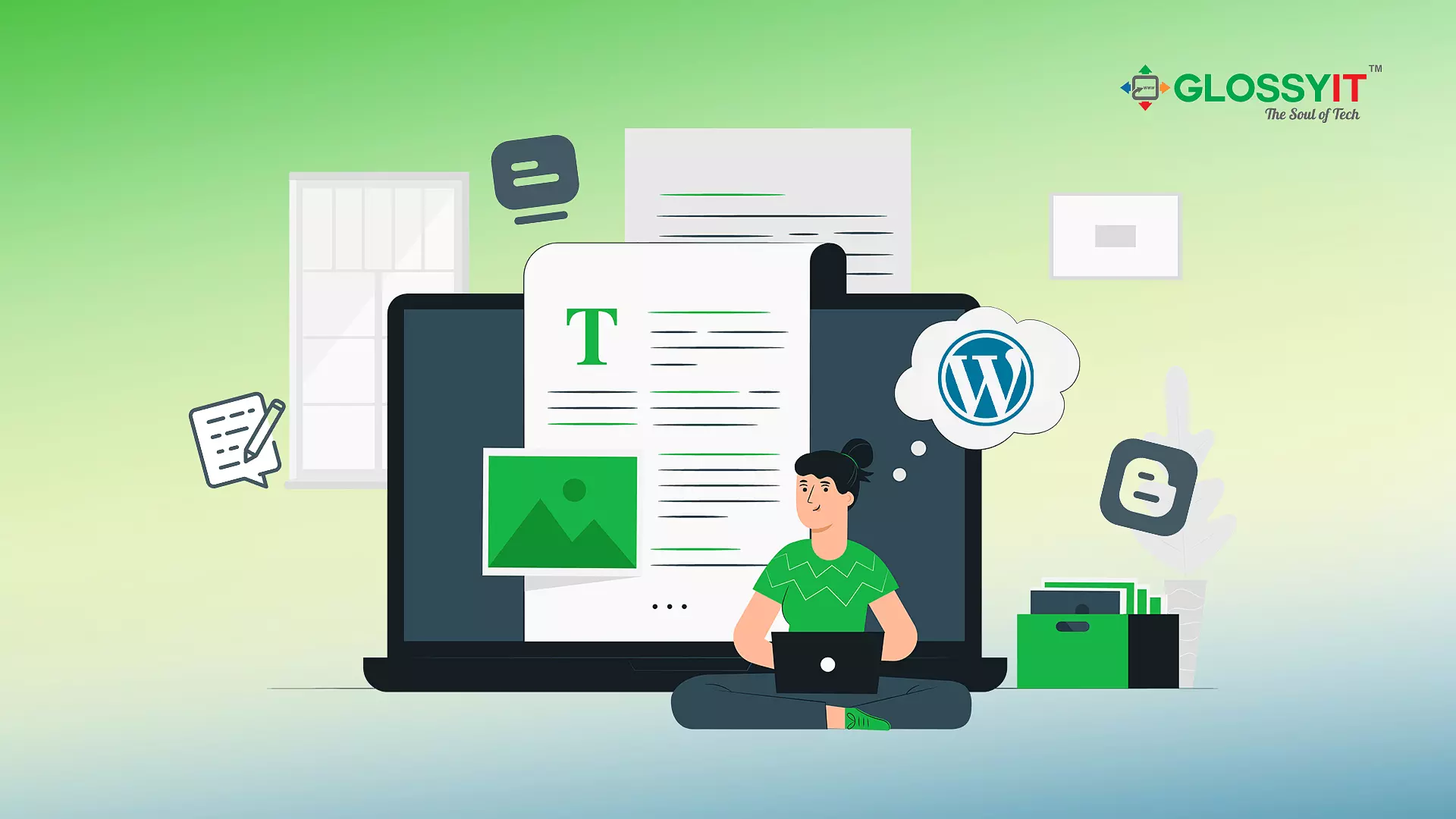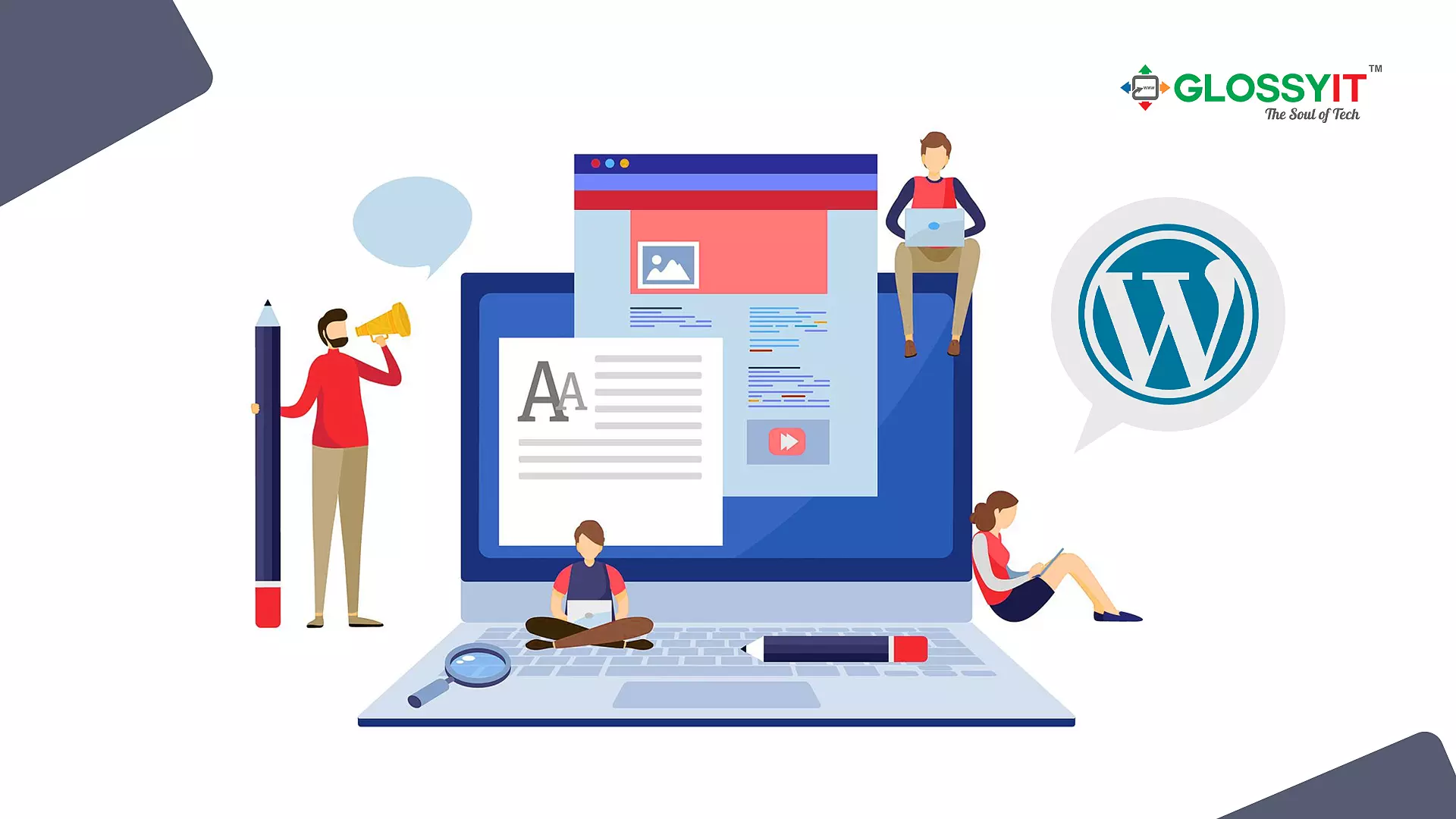- Blog
WordPress Blogging Best Practices

WordPress offers a spectacular platform for bloggers or anyone to showcase their expertise using proper wording and necessary visualization. As a CMS, it can be used for information, e-commerce, portfolios, and many others. Thanks to these specialized features, it is considered the most popular open-source platform for developers and entrepreneurs worldwide, especially for those following blogging best practices.
For a long time, the usage of WordPress has gone beyond traditional blog writing and now it is being widely used for commercial and communication purposes. This development didn’t happen overnight; rather it happened with collaborative efforts. To sum up, this is the outcome of numerous appropriate practices, including blogging best practices in WordPress.
The best practice for any newbie or professional blogger is to schedule the content outline and then start putting flesh on it. To do so, you need to follow some important strategies as a whole, including key blogging best practices.
Here are a few tips and tricks to nurture the WordPress Blogging Best Practices:
Some of the proven best practices for WP blogging include readability optimization, building new content, producing user-engaging images and videos, renaming usernames, ensuring quality topics, and so on.
Readability Improvement
When someone begins promoting a product or service to their target market, they must create a Unique Selling Proposition (USP) first. Similarly, when developing content for your targeted readers, you should aim for 'Ease of Reading', which will naturally enhance the readability of your content.
You can perform better while improving this readability aspect with a few legit tricks:
Font Enlargement
To create legitimate content, you can expand the font size of your blog from 15 to 22, depending on your site’s needs and requirements.
Width of Texts
You should also give attention to limiting the width of your texts to 45-90, as it's one of the important blogging best practices for improving readability and user experience. If you can implement this technique properly, the occasional or irregular page visitors will turn into regular and dedicated readers.

Higher Line Spacing
The readers’ eyes will get less strained if you increase the percentage of line spacing of your blogs. The recommended ratio is 120% to 150% instead of traditional 100%. This adjustment will help readers follow line breaks more easily.
Use of Easy Fonts
Selecting a standard readable font is not the cup of tea for everyone. This font choice depends on a lot of internal and external issues. That’s why you need to put greater effort into making the right choice. Our recommendation for you is to stick to serif or sans-serif fonts initially, as these are the world's most widely used fonts today. However, you can be more realistic in your writing if you use only sans-serif, as it is by far the most modern among all other fonts.
Less Distractions
As a reader, you surely want distraction-free reading, right? Then, why not consider reducing the number of ads on your blog? With these blogging best practices, you can keep your existing audience happy and engaged!
Sensible Moderation
Considering all of the above recommendations completely often requires more attention. So, it is wiser for you to believe your judgment and see what might happen if doing this or that while modifying the blogging.
Fresh Content Publication
As you are done improving the readability, you might wonder who will stop me from writing my new blog post and publishing it! You can stop there while we recommend you not jump into publishing your content hurriedly.
There’s a little thing you might be missing like many other bloggers out there. Yes, we are talking about ‘Scheduling Your Content’.
Not many bloggers may properly execute a well-structured content schedule and eventually fail to reach their goal. At this stage, you should plan the overall content delivery nature while considering your site’s future goal.
This will not only enhance your WordPress site's ranking but also tempt the readers to visit your sites regularly. So, you recommend planning your content delivery routine daily, weekly, or monthly.
Engaging Image
Blogs should not remain as traditional pieces of newspaper or magazine articles; rather these should be equipped with eye-catching and optimized images. For engaging readers in the long term, these are necessary for blogging best practices.
In this situation, you must know when and where to include images. For example, if your content is lengthy, it will be wiser for you to add an image somewhere in the middle of that content. This will captivate your readers' attention and give you an edge over your competitors' blogs.
Quality Content
Suppose you have managed to put a lot of effort into developing attractive images for your blogs, but still fail to engage readers. Then it is surely the outcome of not focusing on quality content.
You need to keep in mind that, only the best quality content in WordPress can increase visitors than any other means.
This quality can be achieved by doing more research on those specified topics and giving greater effort to elegant writing constructions.
Username Modification
Different niches represent different meanings and appeal to different readers. You need to keep track of this aspect by modifying your username following the nature of your blogs’ niches.
Doing so will give you popularity and greater reader engagement in the long run. Also, it will create a lasting impression among them and eventually improve your brand identity.
SEO Implementation
WordPress blogging best practices will remain incomplete without properly implementing SEO techniques. These SEO functionalities can give you advantages from two angles, such as Images and Traffic.
Image
You already know that image sizes can significantly affect the loading speed. As a result, compressing images with WordPress plugins like EWWW Image Optimizer, Smush, TinyPNG, and others can solve the vulnerabilities that arise from slow-loading pages.
Traffic
Knowing how many people visit your site is essential to its success and a core part of blogging best practices. One such tool is Google Analytics, which provides information about your website's visitors and behavior. Your decision-making skills will be improved if you know how to use Google Analytics or similar tools and eventually gain higher rankings on search engines.
Mobile-friendly Plugins
You should focus on examining and installing WordPress plugins optimized for mobile devices. These plugins will enhance the compatibility of your blog for various device sizes. Users of tablets and smartphones will ultimately enjoy a seamless reading experience. As a result, these improvements will enhance your search engine rankings to a desirable level.
How Glossy IT Can Help You with Effective WordPress Blogging Best Practices?
It is pretty natural for you as a beginner or as an experienced blogger to feel puzzled while upgrading your WordPress blog site to get the best performance. However, our skilled WordPress Developers are here to solve all your problems with the best possible solutions. To get things done, you can simply visit our website, Glossy IT.com, to learn more about this aspect.
Or, you can check out what services we offer regarding WordPress & Blogging Best Practices Development.

Concluding Thoughts
To create a unique blogging experience, you should customize your writings with the best practices to publish on the WordPress platform. We have covered most of the modern blogging practices. However, you should also make yourself comfortable with the clarity of your writing along with accurate SEO techniques. Doing so will help you design the perfect content schedule and create engaging content with greater reader satisfaction.

















